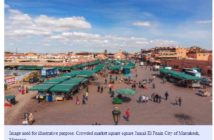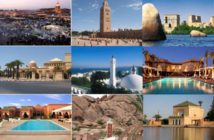ANSAmed

A view of Algiers
(ANSAmed) – TUNISI – Africa will undergo a rapid urbanisation process in the next four years. It is predicted that around 500 million Africans will be driven by economic reasons to leave their country’s suburban areas in favour of major built-up areas. This will push up the number of people living in African cities, from last year’s 52 million to 65 million inhabitants.
This intensive concentration of people in a limited area will create a behavioural shift, which is likely to lead to a change in consumer preferences or will force people to make choices according to financial limitations. Africa is a continent in full demographic turmoil, which opens up interesting investment opportunities. According to a research led by the McKinsey Institute, the turnover for consumer and service sectors will be worth around 410 billion dollars by 2020, making Africa ”the new frontier for global economic growth.” McKinsey’s managing director and co-author of the research, Bill Russo, told the Finance website that consumer-driven industries will be the engines for this future growth, predicting a 45 percent growth in the food market. According to the McKinsey Institute there are 11 African countries that will lead this growth, four of which are in North Africa: Morocco, Algeria, Tunisia and Egypt. The other countries that will spearhead the growth are Angola, Ghana Kenya, Nigeria South Africa, Sudan and Ethiopia. Thanks to these countries’ wealth, job market opportunities and advanced state of democracy, it is natural that foreign investors focus their attention on them.
If one examines the current state of North Africa’s economy, it might seem that this belief is over-optimistic. But researchers look at the long-term prospects and they believe that these 11 countries will show optimal conditions for foreign investment.
In Egypt, Tunisia, Algeria and Morocco both the rate and level of education is high. This mean that the job market will benefit with a young and qualified workforce in the future, and at a much lower cost compared to countries of the Mediterranean basin.
The McKinsey study doesn’t deny that ”poverty and unemployment are even more relevant in the African countries compared to other emerging markets,” however, ”le macro-tendencies observed point to the emergence of a more prosperous consumer that will contribute to a rapid economic growth and job creation” in Africa. (ANSAmed).
.






